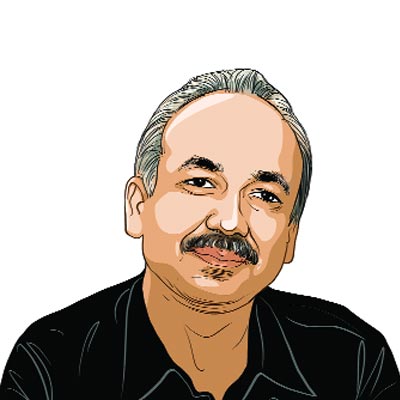Opinion Divided on Kathmandu
Nepals prolonged transition keeps Delhi worried and confused
Nepals prolonged transition keeps Delhi worried and confused
The Delhi yatra of top Nepali leaders,on the invitation of the Indian government,continues. Nepali Congress president Sushil Koirala was the fourth such visitor in three months. Nepals prolonged transition,the Constituent Assemblys failure and uncertainty over elections,proposed poll boycott by some parties and the lack of seriousness among key actors,have naturally worried India.
During these visits,India promised all the support Nepal would want to hold elections as scheduled. But there are worries as the roadmap charted out for Nepal almost seven years ago has not worked. Sonia Gandhi advised Koirala to take into account the economic factor in determining the basis of federalism. It was fundamentally different from the approach of Indian diplomacy all these years. BJP chief Rajnath Singh asked Koirala to have Nepals status as the worlds only Hindu nation restored.
Thus,Indian opinion on its Nepal policy is divided. These suggestions come at a time when it is being said that the decision of Nepals leaders to turn it into a secular,federal,republic was taken in a hurry,without the direct involvement of the people. Sonia Gandhis suggestion on the economic factor comes closer to the Chinese opposition to ethnicity-based federalism an idea the Maoists and Madhes parties had been pursuing.
Endorsing Indias line that the election must take place on November 19,US ambassador Peter W. Bodde told the election commission that the situation is getting more conducive for polls,a statement that facts dispute. Last week,four prominent activists of the Unified Communist Party of Nepal-Maoists (UCPN-M) were arrested while extorting money for elections from business houses in Chitwan,in violation of the code of conduct. The government was forced to release them within 24 hours after Maoists went on a violent strike. On Thursday,the Nepali Congress resorted to similar action after the police arrested two of its leaders for attacking and injuring Indian tourists. In another case,the home minister expressed his helplessness in bringing the perpetrators to justice in a case involving the abduction,torture and killing of an 18-year boy eight years ago by the Maoists. Pro-election parties and their cadres enjoy immunity like never before. This gives them an advantage over others. It proves the absence of a level playing field.
Last week,the Supreme Court deferred yet again the final hearing on petitions challenging the appointment of the incumbent executive head in violation of the principle of separation of power till August 19. The Bar,a sizeable chunk of the legal community and most political groups,apart from the four big parties,want Khil Raj Regmis resignation,at least as the chief justice.
Strangely,all this has brought closer those opposing polls in the existing circumstances and those supporting constitutionalism. Such polarisation and the absence of an accommodative character,along with the four-party control over the government machinery,cast doubts on the coming elections fairness and the constitution-making thereafter.
yubaraj.ghimire@expressindia.com


